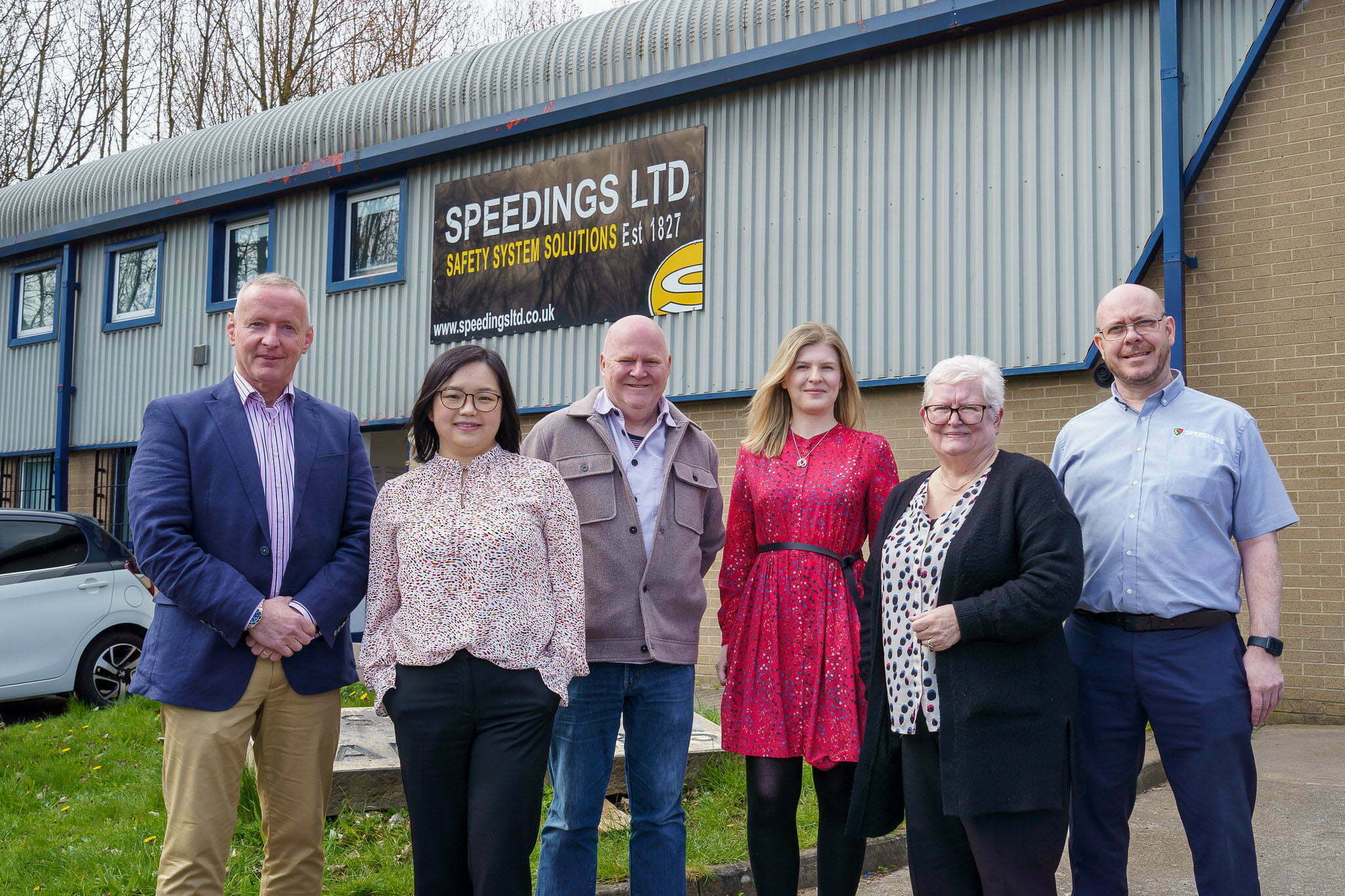
Sailing towards success as a global leader
One of Wearside’s oldest manufacturers looking to grow operations globally is drawing on university expertise to help realise its ambitious expansion plans.
Speedings Ltd began life as a sailmaker in 1827 but has adapted its core business over the last two centuries and now produces innovative lifesaving personal safety products for the emergency services; supplying everything from fire and rescue ropes to anti-bacterial face masks and oxygen cylinder bags.
To meet its growth plans and the challenges of a competitive international market, the family business is strengthening its production and workforce through the University of Sunderland’s Knowledge Transfer Partnership (KTP) programme, which supports business innovation.
A KTP is a three-way initiative between a company, the university and a graduate. The graduate manages the project on behalf of the company, with the university lending its expertise.
Speedings’ Management Knowledge Transfer Partnership (MKTP) is the first of its kind for the University. Two thirds of the project costs are funded through Innovate UK, an attractive way to support businesses with academic expertise in a value-for-money way.
Dr Derek Watson, Associate Professor in Cultural Management, who is the academic lead for the project, explained: “Speedings is in need of expert support to elevate the company as a clear market leader both in the UK and international market, via the integration of best practice and innovation.
“The KTP will transition this ambitious vision into reality. It will involve changing mindsets, co-ordinated employee development, developing innovative communication hubs, enhanced workflow systems, all leading to market expansion.
“Being awarded funding through Innovate UK at this level really is the gold standard of funding for business support.”
The UK protective clothing market is worth more than £250 million, Speedings, which employs 40 staff, is currently leading the fire services market in the North of England, and has international clients in Germany, Sweden, Latvia and Australia. The KTP project will integrate workforce enhancement strategies, reconfigure the manufacturing systems, which will increase productivity, and further grow the company’s profitability.
Speedings Director, Rob Hammal, says: “We are extremely pleased to have been accepted by Innovate UK for funding on this KTP, and can’t wait to get started. Our heritage is something we are extremely proud of, and fundamental to our company values and mission. I am very hopeful this partnership will bring us up to date, and prepare us for the next 200 years.”
This will be the second time Speedings has tapped into university expertise having collaborated with the university almost 10 years ago on its Retractable Breathing Apparatus personal line. The life-saving device attaches to a firefighter’s harness or belt of their breathing apparatus set, hooked to a point of safety as they enter a building which feeds the chord out and is retractable like a dog lead.
Working with Manufacturing Specialist and academic Adrian Morris, Speedings accessed the University’s advanced software applications to help accelerate the design stages of their work.
Dr Amanda Li, Knowledge Transfer Partnerships Officer at the University of Sunderland, said: “We are very excited to be working with Speedings and the process of developing the KTP has been really interesting. We look forward to delivering some real tangible results for Speedings and strengthening the links between the two organisations further.”
John Clayton, a Knowledge Transfer Adviser (KTA) working for Innovate UK – KTN, promoting and developing Knowledge Transfer Partnerships (KTP) in North East England and North West Yorkshire, added: “It’s great to see another local SME wanting to innovate in partnership with a local university and developing a long-term and valuable collaborative relationship via KTP.
“As a KTA the experience of supporting this ambitious KTP proposal between Speedings and University of Sunderland was both rewarding and enjoyable. I look forward to a successful and valuable outcome on completion of the KTP.”
This partnership received financial support from the Knowledge Transfer Partnerships (KTP) programme. KTP aims to help businesses to improve their competitiveness and productivity through the better use of knowledge, technology and skills that reside within the UK knowledge base. This successful Knowledge Transfer Partnership project, funded by UK Research and Innovation through Innovate UK, is part of the Government’s Industrial Strategy.


